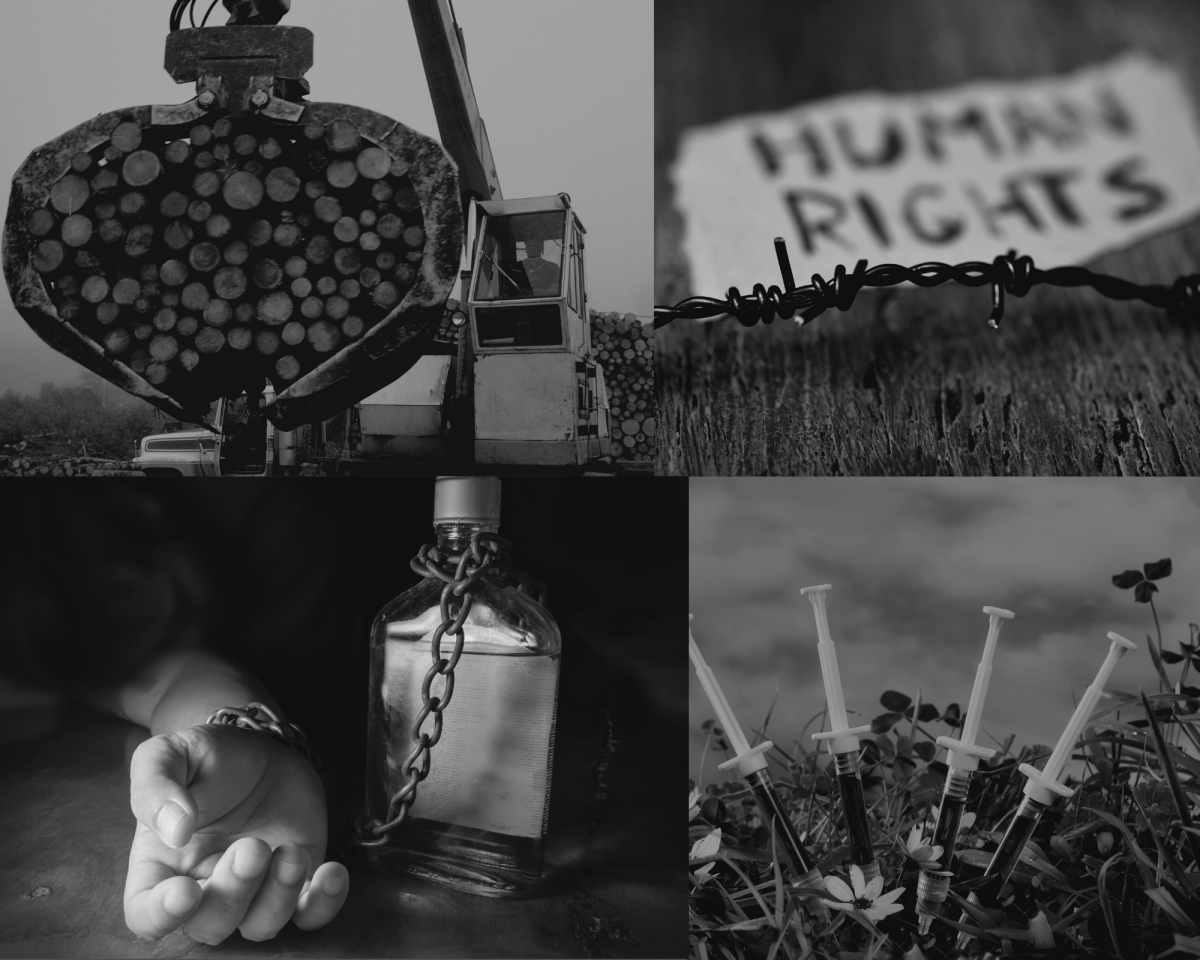This three-part blog series highlights the top environmental and social concerns you might want to consider in your super and investments.
In the second part of this series, we discuss old growth logging, human rights abuses, alcohol and GMOs. In part 1 we looked at gambling, tobacco, fossil fuels and animal welfare. The next and final instalment, part 3, we look at pornography, nuclear, labour rights and armaments.
Like us on Facebook to be first to know when we release part 3!
Do you know where your money is going?
Our super and investments are being used to support companies and industries, but do we know what is actually in our portfolios? While some companies are working hard to be more sustainable and make a positive impact on the environment or society, others are falling short. Even worse, some are knowingly causing harm but continue with business as usual to increase profits.
Here is a brief look at some of the industries that your portfolio might be exposed to. Speak to your financial adviser if you have concerns about the dirty dozen.
In the second part of this series, we discuss old growth logging, human rights abuses, alcohol and GMOs. In part 1 we looked at gambling, tobacco, fossil fuels and animal welfare. The next and final instalment, part 3, we look at pornography, nuclear, labour rights and armaments.
Like us on Facebook to be first to know when we release part 3!
Old growth logging
Demand for low-cost timber products and land conversion for agriculture, supports an industry of illegal and unsustainable logging in forests worldwide. Deforestation causes 15% of global greenhouse gas emissions and contributes to climate change. Old growth forests are an effective carbon sink and release greenhouse gases when destroyed.
Old growth forests are considered valuable culturally, scenically, for tourism and because of their nature conservation features. Their protection and management are extremely important for maintaining biodiversity, including native fauna, flora and insect diversity. They are critical for nesting, roosting and food resources for multiple species. These forests contribute to essential ecological functions such as nutrient and water cycles. Trees can be a renewable resource, but old growth forests are not.
It is important to consider a company’s supply chain when avoiding old growth logging in a portfolio. While multi-billion-dollar logging companies like Camfor in British Colombia are directly involved, companies such as McDonalds with their high demand for paper products or Lindt and their deforestation for cocoa plantations are also responsible. Both food companies are working to reduce their impact, but is this enough?
Human rights abuses
All individuals are entitled to certain basic rights under any circumstance. These include civil freedoms and political rights, the most fundamental being the right to life and physical safety. Human rights cover a spectrum of issues, such as equality, modern slavery, war crimes and more recently, cybersecurity and surveillance. We can protect human rights by making sure every person receives decent, humane treatment.
In Australia, serious human rights issues remain, despite a strong record of protecting civil and political rights. Asylum seekers and refugees are detained in very poor conditions in immigration centres, with humanitarian organisations warning of diminishing mental health, self-harm and frequent suicide attempts. Indigenous Australians remain significantly over-represented and poorly treated in the criminal justice system, including the abuse of aboriginal children in detention. Media freedom has come under attack and protest rights have been limited, impinging freedom of expression. Other human rights issues in Australia include the substandard care of aged and disabled people.
In the past couple of months, Aboriginal sacred sites have been threatened by three of the largest extractives companies in Australia. Rio Tinto destroyed a 46,000-year old Aboriginal site to expand an iron ore mine, whilst up to 150 heritage sites may be under threat from possible new mining projects by BHP and Fortescue Metals. Are these companies in your portfolio?
Due to a lack of transparency in supply chains, many Australians unknowingly invest in human rights abuses through their superannuation funds, pension schemes, banks and insurers.
Alcohol
There are many social and economic problems linked to alcohol abuse. Work performance can be affected by absences, work accidents, reduced productivity, and unemployment. Family can be impacted through impaired parenting, child abuse, home accidents and violence, while the financial costs of alcohol can mean less money spent on necessities for the home including food and medical treatment. Alcohol plays a substantial role in domestic violence incidents.
Alcohol consumption has economic consequences too. In addition to money spent, alcohol abuse can result in lower wages, increased medical expenses and debt burdens, exacerbating issues faced by the poor especially. Impacts can be felt by communities, schools, the workplace and health care system. Social and economic costs of alcohol can reach a significant portion of GDP.
It is possible to avoid investing in alcohol, by divesting from alcohol producers such as Heineken or LVMH Moët Hennessy Louis Vuitton. Or perhaps you would like to avoid companies that sell alcohol, maintain liquor stores or control hotel operations, such as Coles or Woolworths.

GMOs
Genetically modified organisms (GMOs) are those that have been altered in a non-natural way, often to be insect and virus resistant or herbicide tolerant. These changes can be problematic for the environment, and the long-term potential consequences on health and society is not yet understood.
GMOs can reduce weed flowers, reducing the nectar for pollinators. Potentially harmful residues can impact soil bacteria and the health of the soil. Irrigation of these crops can lead to GMO DNA being transferred to waterways and air, potentially exposing other insects, bacteria and animals. Bees can transport pesticides and herbicides to other environments, and pollen from GM plants may carry risks for non-target organisms. There is concern that GM crops will lead to the development of superweeds and insects that are resistant to pesticides. Once GMOs have been introduced into an agricultural environment, it will likely become part of the larger ecosystem.
GMOs bring about environmental, social and ethical debates. Some believe that GMOs do not cause harm, reduce pesticide use, and are essential for feeding a growing world population sustainably. Assessing the safety of GM foods and crops is difficult because of the number of factors involved.
Common GM crops include soybean, corn, and cotton. From textiles to beauty products to food, these crops end up in company supply chains and those companies sneak into our portfolios.
There is a silver lining. While there are companies that might be avoided, there are plenty of companies that are actively working towards a sustainable future. By making conscious decisions, investors can influence positive change.
Do other issues concern you? Is there anything you would like to avoid in your portfolio?
Want to know more?
Speak to me about how responsible funds may work in conjunction with your overall financial plan.
IMPORTANT; This information is general in nature only it does not take into account your individual circumstances. We recommend that you seek professional advice before making any investment decision.
Please call 08 8363 8810 or email pgarner@novowealth.com.au to discuss.
All the best
Paul Garner CFP®
Certified Responsible Investment Financial Adviser
This article was written in collaboration with Paul Garner of Novo Wealth and Alexandra Brown of Invest with Ethics



